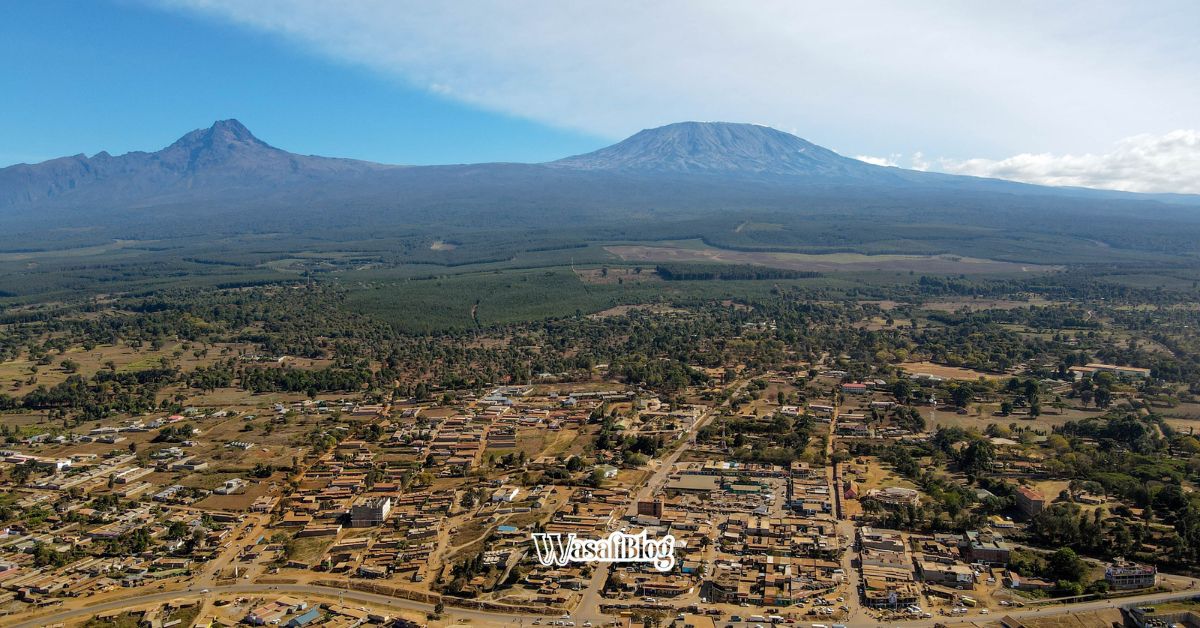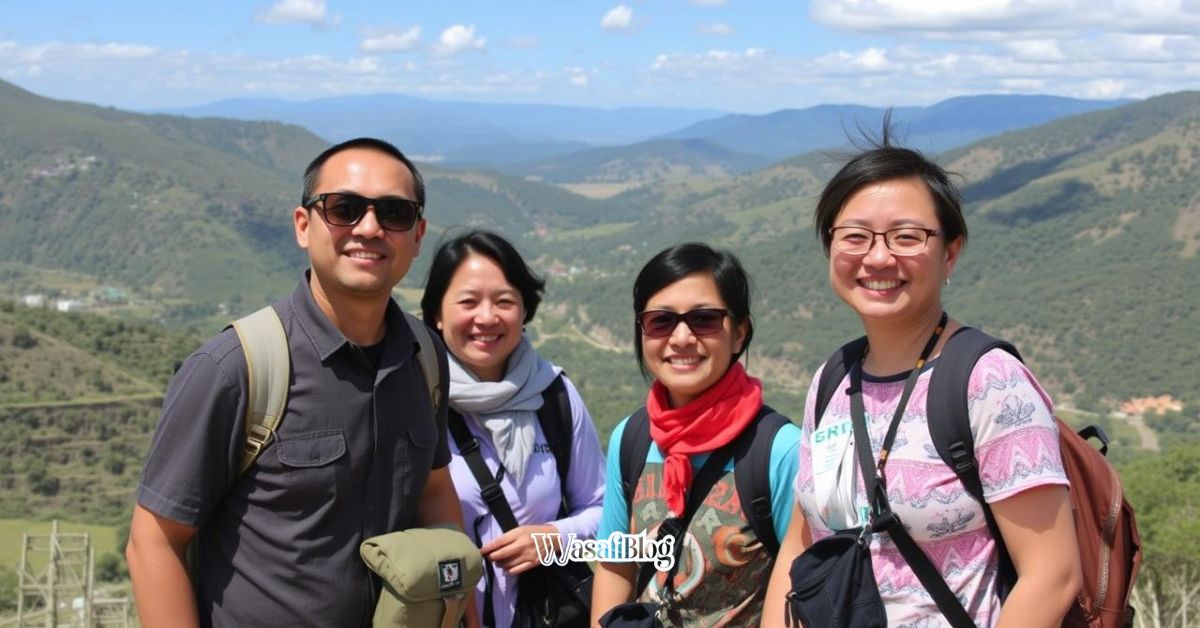Arusha hums with the energy of East Africa. It’s a place where colorful markets burst with life, inviting you to discover unique treasures. This city acts as a key gateway to Tanzania’s world-famous safari destinations, like the Serengeti and Ngorongoro Crater. For many visitors, finding special souvenirs in Arusha becomes a memorable part of their African travel story.
Your Guide to Arusha: Shopping for Best Souvenirs
The best souvenirs are truly authentic. They represent Tanzanian culture, amazing craftsmanship, and the beauty of nature. You can find all sorts of items, from art made by hand to goods sourced right from the area. The joy of finding something special to bring home is a real highlight of any trip.
1. Getting to Know Arusha’s Souvenir Scene
This city town sits at the heart of Tanzania’s tourism, making its souvenir shopping scene special as It’s different from other busy tourist spots.
1.1. The Gateway to Tanzania Adventures
Arusha is super important as a starting point for safaris. Most trips to the Serengeti, Ngorongoro Crater, and Mount Kilimanjaro begin here. This means the souvenirs you find often reflect these natural wonders.
They also show off the rich Maasai culture. Many travelers spend a day or two in Arusha before or after their safari, making it a perfect time to hunt for gifts.
1.2. Types of Souvenirs to Expect
You will see many different kinds of items. It helps to know what to look for before you start.
- Art and Crafts: Think hand-carved wooden animals, bright paintings, and intricate beadwork. You might also spot a Maasai shuka, which is a special type of fabric.
- Textiles: Look for colorful Kanga and Kitenge fabrics. These are often used for clothing or to make bags.
- Jewelry: Silver pieces, shiny gemstones, and beautiful beaded necklaces are common.
- Home Decor: Items made from old dhow boats, woven baskets, and wall hangings can add a unique touch to your home.
- Food and Drink: Try local coffee, fragrant spices, or sweet honey.
- Cultural Items: You may find traditional musical instruments or ceremonial objects. Always buy these responsibly, understanding their meaning.
1.3. Where to Shop: A Market Overview
Knowing where to go makes your shopping easier. Arusha has a few popular places to find souvenirs.
The Central Market buzzes with activity. It is a true local experience. You’ll find a huge variety of goods here, and navigating its busy aisles is an adventure itself.
The Cultural Heritage Centre offers a different vibe. It has a carefully chosen selection of items, often higher quality, and prices are usually set.
Incredible Maasai Market Stalls are specific spots known for Maasai crafts. Here, you can meet the actual artisans.
Finally, Hotel Shops/Boutiques are convenient if you are short on time. Just remember, these are often more expensive options.
2. Mastering the Art of Haggling and Etiquette
Shopping in Arusha often means you will bargain for prices. It is a common part of the culture here and learning how to do it politely makes the experience even much better.
2.1. The Nuances of Bargaining
Haggling is expected in many markets but it should practice with a good attitude and respect for the vendor. Try starting your offer at about 50-60% of their first asking price. Then, aim to settle somewhere in the middle.
Before you even start talking prices, have a clear idea in your head of what you are willing to pay. This helps you stick to your budget.
2.2. Building Rapport with Vendors
A friendly approach can truly make a difference. It can even help you get a better price. Always start with a warm greeting and a smile. Take a moment to chat briefly before diving into negotiations.
Local vendors often appreciate it when you show a real interest in their craft. This simple connection makes the whole process more pleasant for everyone.
2.3. When to Avoid Haggling
Not every place in Arusha expects you to bargain. Some shops have fixed prices, and it is best to respect that. Places like the Cultural Heritage Centre, for instance, have set prices on their items.
Trying to haggle there just isn’t the right way to go. Understand when it’s okay to bargain and when it’s not.
3. Finding Authentic Tanzanian Crafts
It is exciting to find real, high-quality items. These pieces truly show off local artistry and culture. They tell a story of Tanzania.
3.1. What Makes a Tanzanian Souvenir “Authentic”?
Authentic Tanzanian souvenirs are not just mass-produced items. They are pieces made by local artisans, often using traditional techniques. Look for items that clearly show the hands-on care of their maker.
They should be crafted with local materials, reflecting the region’s natural beauty and skills. These are the items that carry a true piece of Tanzania with them.
3.2. Identifying Quality Wood Carvings
Wood carvings are very popular in Arusha. To find a good one, look for a smooth finish. Notice the intricate details in the design. The best pieces are often made from local hardwoods, like Ebony or Mahogany.
Check large carvings carefully. Make sure there are no visible seams or glued parts that might break later.
3.3. The Beauty of Maasai Beadwork
Maasai beadwork is stunning as each piece tells a story through its colors and patterns. Different colors often have special meanings in Maasai culture. When looking for quality beadwork, check for uniform bead size.
Make sure the tension in the stringing is even. The piece should feel sturdy and well-made, whether it’s a necklace, bracelet, or a wall hanging.
4. Textiles and Wearable Souvenirs
Tanzanian textiles are vibrant and full of character. They make excellent souvenirs you can wear or use.
4.1. Kanga and Kitenge: Fabrics with Stories
Kanga and Kitenge fabrics are more than just cloth; they are part of daily life and culture. Kangas often have Swahili proverbs or messages printed on them, making them truly unique. People use these fabrics for everything from clothing to baby slings.
You can buy the fabric by the yard and have custom clothing made. Many shops also sell pre-made items like skirts, scarves, or bags, which are ready to go.
4.2. Choosing Quality Garments and Accessories
When picking out clothing or accessories made from local fabrics, check the quality closely. Look at the stitching; it should be strong and neat. Feel the fabric to ensure it is durable and will last. Also, notice the colors.
They should be vibrant and not look faded. A well-made garment will keep its beauty for years to come.
4.3. The Iconic Maasai Shuka
The Maasai shuka is a distinctive red and black checkered blanket. It’s a practical and symbolic item for the Maasai people.
This versatile piece can be used as a warm wrap, a comfortable blanket, or even a bold fashion statement back home. Its unique pattern instantly brings to mind the Maasai culture.
5. Beyond the Expected: Unique Arusha Finds
Sometimes, the best souvenirs are those you don’t expect. Arusha offers some less common but equally wonderful finds.
5.1. Tanzanian Coffee and Spices
Tanzania grows some truly wonderful coffee. Its rich, deep aroma is unforgettable. Many coffee regions are renowned for their quality beans. You can also find an array of fragrant spices. Think of cardamom, cloves, and cinnamon, all fresh and intensely flavorful.
Buying these directly from local markets or trusted distributors ensures you get the freshest products.
5.2. Locally Made Jewelry and Gemstones
Arusha is a great place to find handcrafted jewelry. Many pieces feature local materials. Tanzania is the world’s only source of Tanzanite, a beautiful blue-violet gemstone.
If you plan to buy Tanzanite, always go to certified dealers. You’ll also find lovely silver and other beaded jewelry, perfect for a special keepsake.
5.3. Supporting Local Artisans and Social Enterprises
When you buy souvenirs in Arusha, think about where your money goes. Some shops actively support community development. They work with organizations or cooperatives that empower local artisans. These places ensure fair wages for the people who create the crafts.
Look for shops that clearly state their mission to help local communities thrive. Your purchase can make a real difference.
6. Practical Tips for a Successful Souvenir Hunt
A little planning can make your souvenir shopping trip much smoother. These tips help you have a rewarding experience.
6.1. Budgeting and Currency
Before you start souvenir shopping in Arusha, know how much you want to spend. It is helpful to understand the current exchange rate between your currency and Tanzanian Shillings.
For market purchases, it is smart to carry small denominations of Shillings. This makes transactions easier for both you and the vendor.
6.2. Packing Your Treasures
Think about how you will get your souvenirs home safely. If items are fragile, pack them securely within your luggage. Use soft clothing or bubble wrap for extra protection.
Always be mindful of airline restrictions for size and weight. You do not want any surprises at the airport.
6.3. When to Buy: Timing Your Shopping
Deciding when to shop can influence your experience. Many travelers find it best to do their souvenir shopping at the beginning or end of their trip.
This allows for better planning and less rushed decisions. You can take your time to explore options and pick out truly special items.
Conclusion
Shopping for souvenirs in Arusha is more than just buying things. It’s a rich cultural experience, a chance to connect with local life. You’ll embrace the sounds, sights, and smells of the markets. Strive to find authentic, handcrafted items. These pieces tell a story and directly support the talented artisans who make them.
So, engage with the vendors, explore every corner, and find those perfect treasures. They will be cherished reminders of your incredible Tanzanian adventure.





